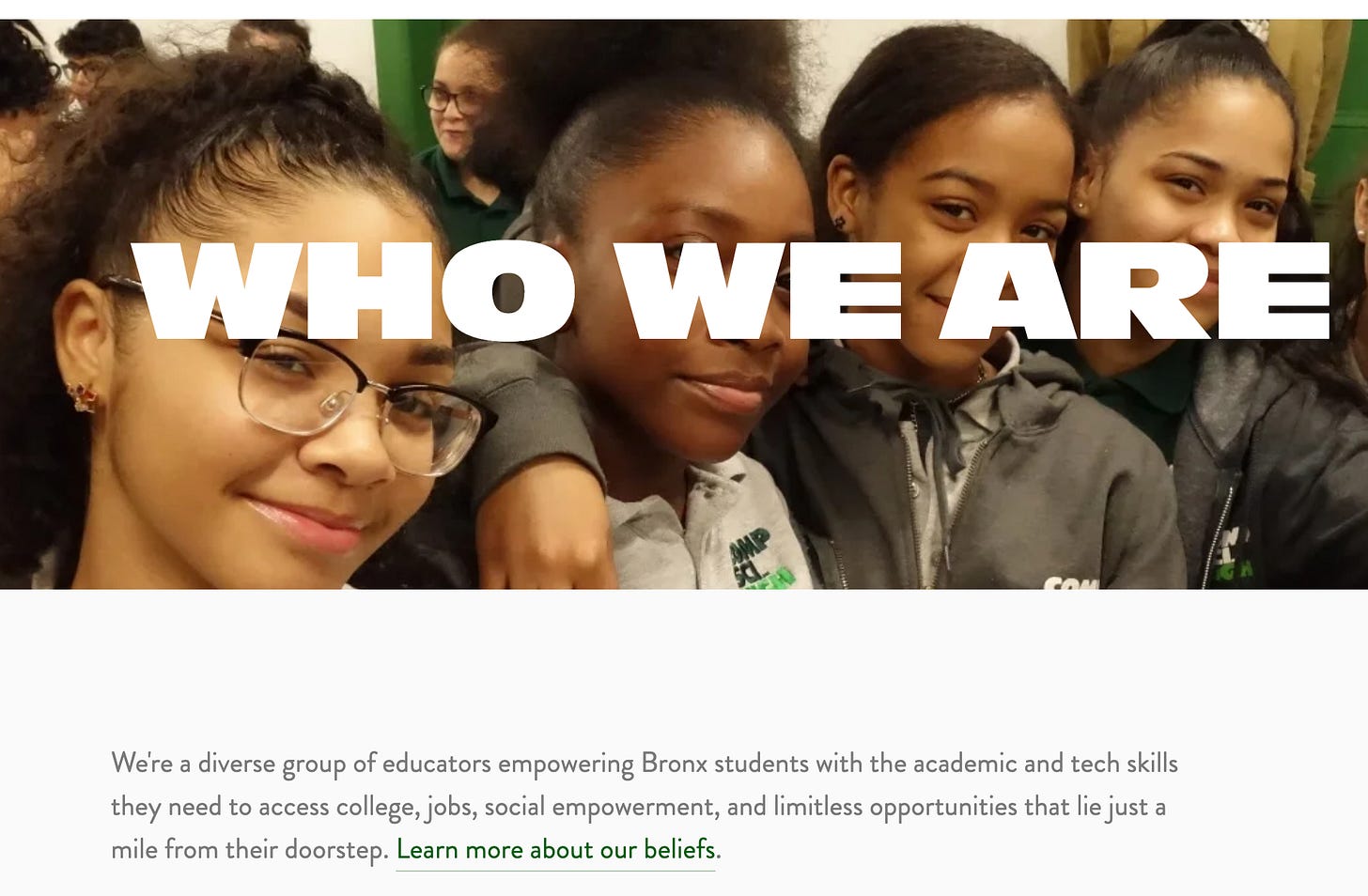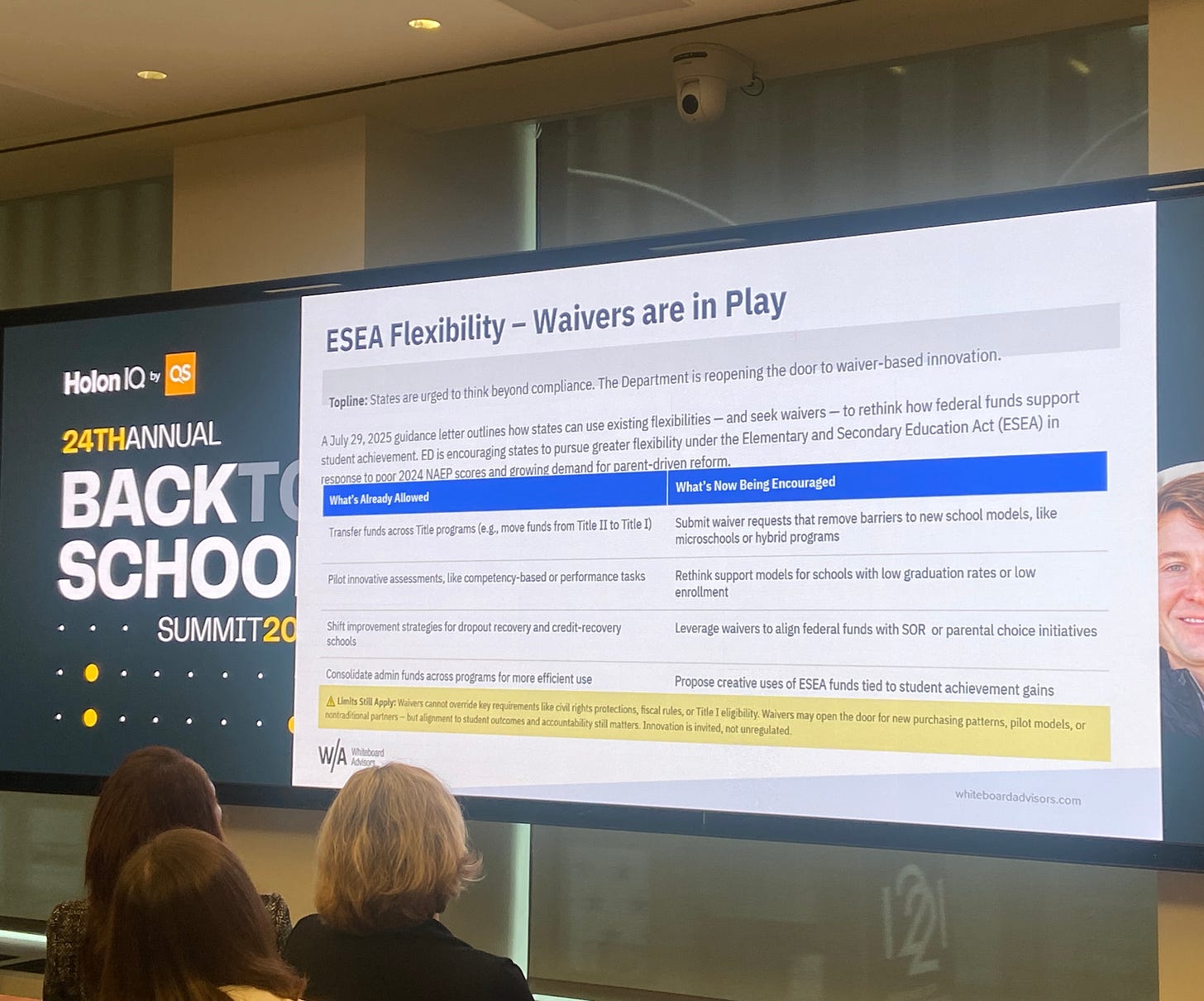22% of High School Seniors Are Math Proficient
Let that sink in
Failing Grades, Failing Schools
The latest National Assessment of Educational Progress (NAEP), released this Monday, shows the worst performance among 12th graders since 2005, with deeply troubling results in both Math and Reading, as well as poor performance on 8th grade science. To wit:
Only 35% of 12th graders are proficient in reading, the lowest in history since NAEP began.
The achievement gap in science between the highest - and lowest-performing 8th grade students was the largest ever recorded.
The steepest decline was for African American students, whose reading levels dropped 11 points — almost twice the rate of their white counterparts.
Just 22% of 12th graders are proficient in math, the lowest since 2005. (Earlier results from 4th and 8th grade assessments also recorded declines in reading).
Only 16% of low socioeconomic-status students scored proficient in reading while 50% scored below basic.
All gains made in 8th grade science since 2009 have been erased.
Only 11% of low-socioeconomic students were proficient in science.
So how should you think about this as you go about your day?
Forty years ago, A Nation at Risk warned that if a foreign power had imposed such results, we would have considered it an act of war. Today, the crisis is homegrown — and it is eroding America’s workforce and future competitiveness. We cannot lead in AI, aviation, or semiconductor manufacturing if your graduates can’t pass the nation’s benchmark test.
Starting Over.
The Nation’s Report Card is clear: we must rebuild American education from the ground up. Start over. From scratch. And we must return power to parents — not bureaucracies — to drive their children’s education. The future of American innovation depends on it.
That’s what I shared with CBS Evening News last night. Hats off to the long established news organization for its coverage through the day. Without sunshine we will never crack the code — convincing the public, parents and policymakers we need bold solutions like:
Comp Sci High, featured in the piece, which is able to create and manage innovative, personalized efforts to ensure students are constantly moving forward. Charter schools like this one have the flexibility and freedom to do just that. Without district shackles, union demands, and top-down interference, Founder David Noah can focus on what works in real time — not what hundreds of bureaucrats think is best.
Not all charter schools have the freedom to innovate. Even in states that pass laws to expand access, barriers remain firmly in place. Georgia’s new Charter Incentive Law (SB 82), enacted in 2025, was supposed to make it easier for charters to be authorized by offering districts cash rewards for approvals. But the reality has not changed.
Take SOAR Academy — a proven, high-demand model for neurodivergent students that thrived during the pandemic. It still had to navigate a bureaucratic, compliance-heavy process that seemed designed to block rather than support innovation for its new Georgia Discovery Charter Academy. Instead of readily opening doors for unique schools, the charter authorization system forces every applicant into a rigid, one-size-fits-all mold where district politics and paperwork take priority over student needs. The result: a system where innovative school leaders spend more time and money satisfying administrative mandates than serving children, proving that often even the best intentioned laws come with erect barriers instead of removing them.
The Bottom Line - Freedom Matters
Freedom for any kind of school organization or provider — public, private, charter, microschool, community organization — means having the ability to be agile and drive results with rapid iterations of programs, creating ongoing incremental changes in real time without having to account for every variation in effort. It means being able to hire and amend the work being done without Big Labor dictating terms. And it means having the same funds that are allocated for students follow them to the schools actually providing their education. What a concept.
These are the measures that make some states shine and others fail miserably. States that offer more freedom have better outcomes. It’s that simple. And schools — whether they are old, clunky districts or private schools — do better when they can utilize funds flexibly to solve problems.
Districts Are Paralyzed
That’s the big takeaway from conversations — so far — from the 24th Annual Back to School Summit sponsored by Holon IQ and Quorum.
Despite unprecedented freedom to innovate and accelerate learning, many districts are stuck in neutral — often freezing their spending in anticipation of some great axe falling on their funding. Much of it is “saved for a rainy day,” as if student achievement could get any cloudier. Rather than find new ways to spend funds to personalize learning — and perhaps work toward turning those abysmal NAEP scores around — even the best district leaders are focused on preservation, not reinvention.
The U.S. Secretary of Education could play an enormous role in changing these attitudes. It’s not just about telling states they have freedom — it’s about encouraging and motivating states to demand change from districts. States still hold the purse strings. If they aren’t communicating well and often to school leaders to take risks in delivering programs and diversifying teaching and learning approaches, most leaders simply won’t take risks to do it.
State legislators also have a huge role to play. After all, they appropriate the funds and keep a check on the executives. Education is the largest single budget item in every state. Imagine if state lawmakers were focused not just on “how are we doing?” but also “what are we doing that’s working — and what’s not?”
But even that kind of conversation won’t go far until competitive forces play a bigger role in the education landscape. The ripple effect from Florida and Arizona choice programs on changing district behavior is well-documented. The more choice, the more ripples.
So while the feds are pushing flexibility down to states, states must be pushing flexibility to schools — and more freedom to parents. A few nice charter school laws or pilot ESAs don’t get at the heart of solving the crisis at hand.
Only power to all parents will. Let that sink in, too.
As I was about to hit send, news broke of Charlie Kirk’s senseless murder. A hero to young people everywhere, and someone who valued political discourse at every level, his loss is hard to fathom.
Sitting here in New York City on the eve of 9/11, and still thinking of last week’s tragic shooting at Annunciation, I am reminded again of how fragile life is — and how violence, in any form, cuts deep. Life is too precious and too short for us not to do everything we can to ensure our kids are safe and set up for success.
We must begin again, as Lincoln urged in 1861, to appeal to our better angels:
“We are not enemies, but friends. We must not be enemies. Though passion may have strained, it must not break our bonds of affection. The mystic chords of memory will swell when again touched, as surely they will be, by the better angels of our nature.”
May God bless those suffering today from pain and tragedy. And may God help us — today and always — to seek, and to offer, our better angels in our relationships and in our work.
—— Jeanne




